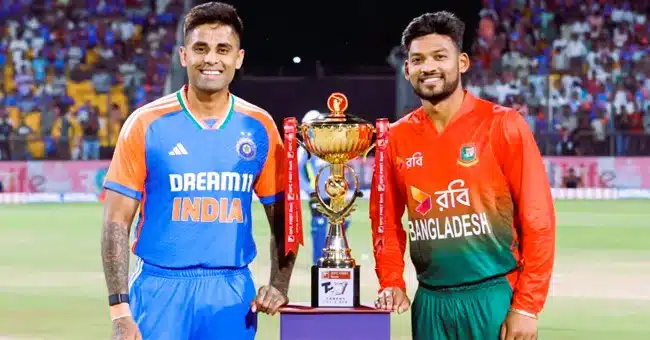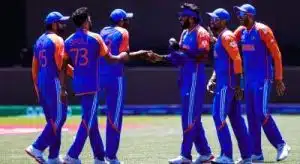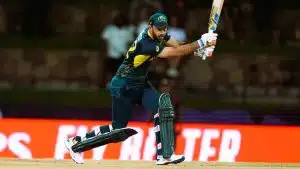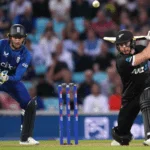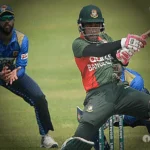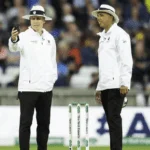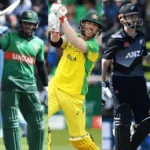In the 1980s and 1990s, when the Pakistan cricket team regularly visited India for series or tournaments, the sight of heavy security was common. Police officers swarmed both inside and outside the stadiums, with stringent security measures in place. Officials and security personnel were constantly on edge, fearing that various extreme Hindu nationalist groups might attempt to disrupt the matches.
In 1991, members of the Maharashtra-based Shiv Sena party even dug up the pitch at Mumbai’s famous Wankhede Stadium, effectively canceling the India-Pakistan match. Shiv Sena’s declared policy at the time was: “No matches with Pakistan, a sponsor of terrorism.”
Thirty-three years after that incident, it seemed almost unimaginable that Indian authorities would still need to impose strict security measures, deploy thousands of police officers, or prevent protesters with black flags from entering stadiums to protect an international match. Yet, that was precisely what happened before the first T20 match between India and Bangladesh last Sunday (October 6) in Gwalior.
After a 14-year absence, international cricket returned to Gwalior with that match, and the city was wrapped in a security blanket. The new stadium was turned into an almost impenetrable fortress.
Black Flags in Gwalior, What About Kotla?
Despite the security measures, when the Bangladesh cricket team traveled from their hotel to the stadium in Gwalior, members of the “Bajrang Dal” managed to wave black flags at them, evading police surveillance.
Earlier, on Friday, Bangladeshi cricketers couldn’t even attend Friday prayers at a local mosque; they had to pray at their hotel due to security concerns. The famous Moti Mosque in Gwalior’s Phoolbagh area was only three kilometers from their hotel, but they were barred from going there.
The second match of the T20 series is set for today, Wednesday (October 9), at the Arun Jaitley Cricket Stadium in the capital, Delhi, also known by its former name, Feroz Shah Kotla. While Gwalior’s Shri Manto Madhavrao Scindia Stadium is located slightly outside the city, Kotla is right in the heart of Delhi, with excellent public transport, including metro access.
Delhi police are on high alert to ensure security at the match. Similar security challenges arose during the series’ first leg, when Bangladesh played two consecutive Test matches in Chennai and Kanpur. Both venues faced threats of disruption, though the Board of Control for Cricket in India (BCCI) ultimately ensured both Tests were completed without incident.
Since February 2017, Bangladesh has been playing international series against India on Indian soil, including their first Test match in Hyderabad. Over the years, they have played multiple Asia Cups and World Cups in India. However, there has never been such a high level of concern over security as there is this time.
Interestingly, this situation seems to be linked, in part, to recent political changes in Bangladesh.
“No Cricket with Hindu Persecutors”
Since Sheikh Hasina’s government was ousted in Bangladesh on August 5, reports of attacks on Hindu minorities have emerged. Consequently, several Hindu nationalist groups in India have called for a boycott of cricket with Bangladesh.
This series, consisting of two Test matches and three T20s, was scheduled well in advance, but these groups argued that India should cancel the series, and they submitted memorandums to the cricket board.
Starting in mid-September, social media in India saw the rise of the hashtag #BoycottBangladeshCricket. Groups like the Hindu Mahasabha, Bajrang Dal, and the Hindu Janajagruti Samiti began arguing that playing cricket with Bangladesh would insult Hindu sentiments.
Several right-wing social media influencers, including Vikram Pratap Singh and Abhay Narayan Kulkarni, supported these calls. Before the Chennai Test, the Hindu Janajagruti Samiti issued a statement claiming, “Hindus are being persecuted in 52 of Bangladesh’s 64 districts. In this situation, playing cricket with Bangladesh would be nothing but a disgrace.”
In Gwalior, Hindu Mahasabha president Jayveer Bhardwaj wrote directly to Indian Prime Minister Narendra Modi, urging him to cancel the match.
The International Society for Krishna Consciousness (ISKCON) also weighed in, with Vice President Radha Raman Das tweeting on September 15, “While the Indian board is set to warmly welcome the Bangladesh cricket team, Hindus in Bangladesh are suffering persecution under the sun and rain, hoping the world will hear their cries.”
While these groups may not wield significant power, they do have hundreds of cadres in various cities. Sometimes, even a handful of individuals is enough to disrupt an international match, which is why Indian authorities are taking no chances with security for this series.
What is the BCCI’s Stance?
When the Bangladesh team arrived in India in mid-September for the series, they were formally welcomed by the BCCI in Chennai. Videos of this welcome sparked criticism on social media, with users accusing the BCCI of shamelessness.
Despite such provocations, the BCCI has remained silent, with a senior official only commenting, “The Bangladesh series is very much on, as everyone can see. There’s nothing more to say.”
During earlier threats in Kanpur, the BCCI also stood firm, ensuring that the Test match would be held with maximum security.
Veteran Indian cricket journalist Pradeep Magazine believes that the BCCI’s refusal to cancel the series is mainly because of the World Test Championship (WTC).
“In the past, India has canceled numerous Pakistan series for political reasons. But this time, the main reason for not canceling is that India doesn’t want to lose the chance to play in the WTC final,” he said.
The series has been part of the ICC’s Future Tours Program (FTP) for a long time, and if India refused to play against Bangladesh for political reasons, they would lose crucial points, jeopardizing their chances of reaching the final.
Moreover, playing two Test matches but refusing to play the remaining three T20s would be meaningless, which is why the BCCI has decided to play the entire series.
However, many in India still believe the board made the wrong decision, and some have taken to social media to declare that they won’t be watching these matches on television.

